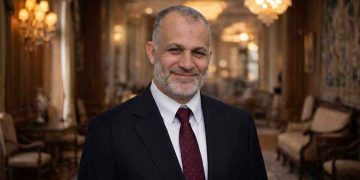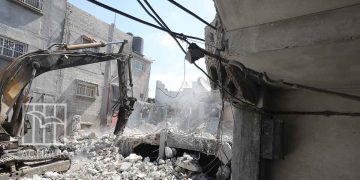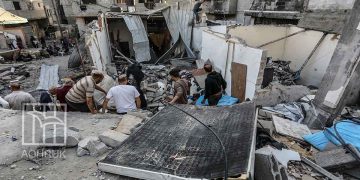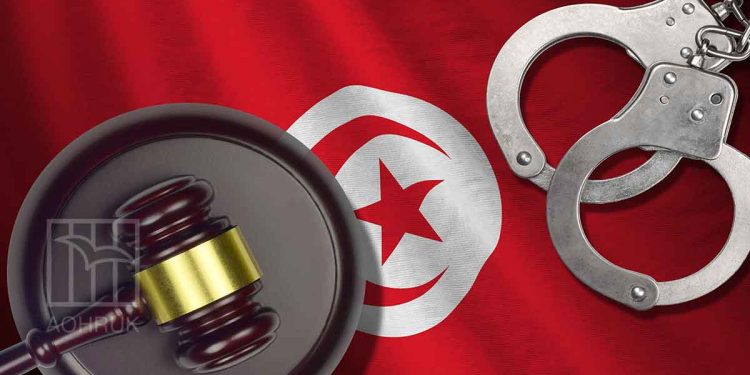A Tunisian court has sentenced Rached Ghannouchi, leader of the Ennahda Movement, to 14 years in prison in the case known as “Conspiracy Against State Security 2”; one of several cases in which dozens of political figures and activists in Tunisia are being prosecuted, in what is widely seen as the regime’s continued use of the judiciary as a tool to eliminate political opposition.
The verdict was issued by the criminal chamber specialising in terrorism cases at the Tunis Court of First Instance, which also sentenced a number of other security and political figures to prison terms ranging from 12 to 35 years. Those convicted include former heads of security agencies and senior members of Ennahda, in addition to in absentia sentences issued against fugitives, including Nadia Akacha, former chief of the presidential cabinet, and Moaz Ghannouchi, son of Rached Ghannouchi.
Ghannouchi’s defence team has firmly rejected the ruling, noting that the hearing was held remotely and that their client refused to participate in protest at what they described as the “absence of the most basic conditions for a fair trial.” They further stated that the case relied solely on “the claim of a secret, anonymous witness” who, according to the defence, presented no concrete evidence against Ghannouchi.
The case, which began in May 2024, saw repeated delays until the verdict was finally delivered on 8 July. Around 20 defendants are being tried on what have been described as fabricated and serious charges, including “forming a terrorist organisation, conspiring against state security, money laundering, financing terrorism, and attempting to overthrow the government.”
Since 25 July 2021, Tunisia has undergone a dramatic political transformation after President Kais Saied announced a series of exceptional measures, including the dissolution of Parliament and the Supreme Judicial Council, the issuance of presidential decrees, and the imposition of a new constitution. These steps have widely been viewed as a coup against the country’s nascent democracy and a return to autocratic rule.
In this context, political trials have increasingly become a means to silence dissent, with defendants facing severe charges that are difficult to contest in proceedings often lacking the basic safeguards of a fair trial. Terrorism courts have effectively become platforms for prosecuting civilian and political figures, blurring the line between legitimate political activity and actual threats to public security; a conflation that undermines the very foundations of justice and legal guarantees.
What is particularly concerning is that these verdicts come amid escalating restrictions on freedom of expression and association, along with arrests targeting trade unionists, journalists, and human rights defenders. This reflects a fast-moving trend toward closing the public space and reproducing the authoritarian conditions that the 2011 Tunisian revolution had sought to dismantle.
The use of sweeping security charges to demonise opposition figures, through trials in absentia or the use of anonymous witnesses, is a dangerous sign of the regression of the rule of law. The absence of fair trial guarantees in cases of such magnitude severely erodes public confidence in the independence of the judiciary and entrenches a culture of impunity for abuses of power.


























